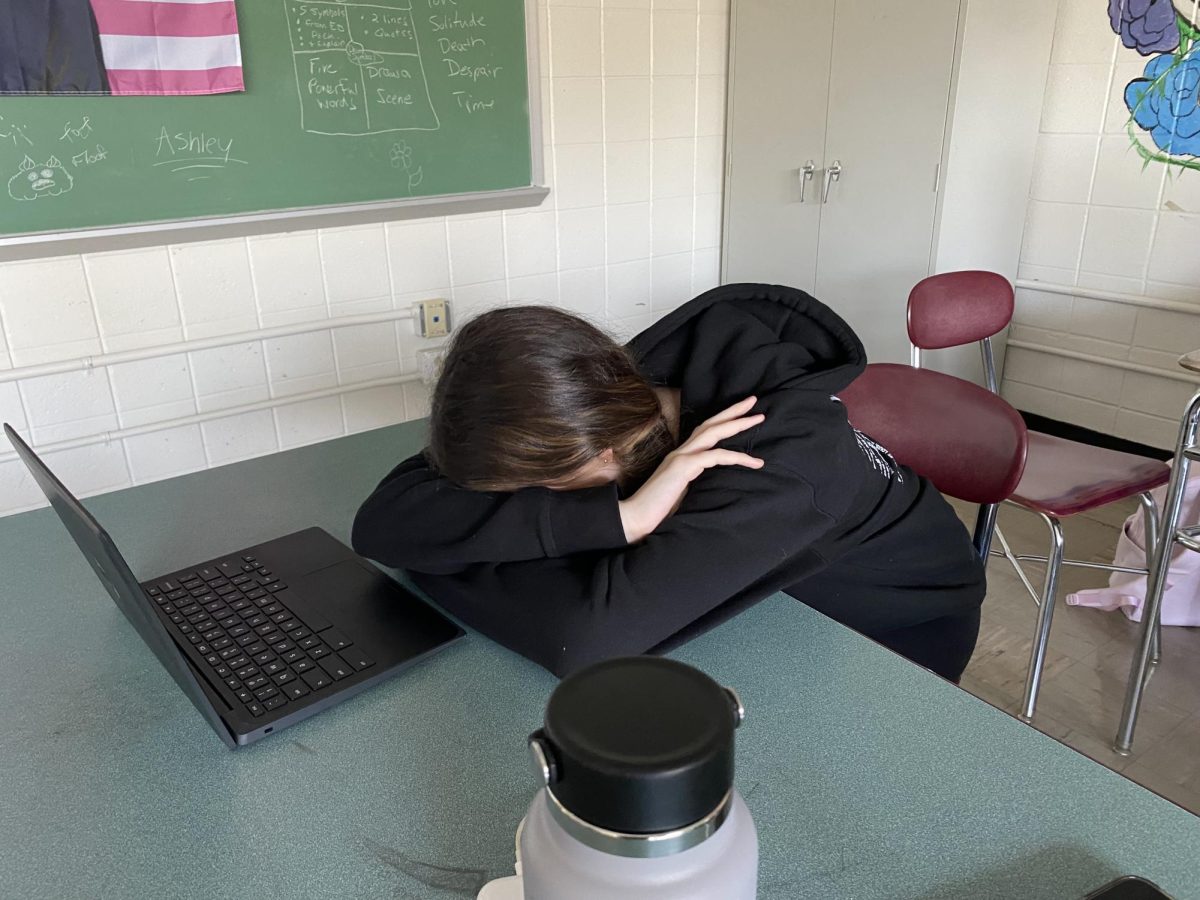Do you ever feel like your brain is overflowing—like a sink full of dirty dishes? You’re not the only one. According to a study by the American Psychological Association, about 31% of teens say they feel overwhelmed, and another 30% report experiencing stress and anxiety. When our minds are packed with thoughts, it becomes harder to focus and easier to feel anxious.
The good news? There are simple strategies to help clear your head and regain control.
“I procrastinate a lot,” admits Ludlow High School junior Allison Lewis. “When it comes to school, I get pretty stressed out.”
She’s not alone. Studies show that around 86% of high school students procrastinate on assignments, and about half do it regularly. Whether it’s waiting until the night before to study for a test or letting laundry pile up until there’s nothing clean left to wear, procrastination is a common habit—and it’s not always about laziness.
“Procrastination is not just a matter of poor time management,” says therapist Elizabeth D’Alessandro. “It has to do with a person’s emotional well-being.”
In fact, procrastination can be a way of avoiding difficult emotions—like fear of failure, anxiety, or perfectionism. Sometimes, we know what we need to do but avoid it anyway because we feel overwhelmed, unmotivated, or emotionally drained.
To break the cycle, the first step is self-awareness. Ask yourself: What’s really going on? Are you stressed from a fight with your parents? Avoiding an assignment that feels impossible? Identifying the emotions behind the procrastination can help you manage them—and move forward.
Another important tip: Set realistic goals.
Students often overwhelm themselves with too many difficult tasks at once, which makes everything feel harder. “Balance is key,” as the saying goes—and that applies to school, sports, and mental health.
“Life, school, sports, and everything make me feel overwhelmed,” says junior Aneysha Donais.
To manage the load, try breaking big tasks into smaller, more manageable steps. Instead of doing all your homework late at night after practice, try completing part of it beforehand. If you have a big test coming up, study a little each day instead of cramming the night before. These small changes make a big difference in reducing stress.
“I feel a lot better once I get my homework or errands out of the way,” says LHS junior Kacie Klimek. “It helps a lot because I don’t have to worry about it anymore.”
Getting things done helps improve your mental health and boosts motivation. If you’re feeling exhausted from worrying about everything on your to-do list, checking off a few tasks can bring relief.
Another great strategy is physical activity. For many students, exercise is a powerful tool to manage stress.
Personally, going to the gym helps clear my mind. Physical activity releases endorphins, which improve your mood and reduce anxiety. At the gym, I’m focused on movement—not the million things on my to-do list.
Driving is another helpful outlet. Just taking a 15-minute car ride while listening to music can feel surprisingly therapeutic. Sometimes, the right song can help you process how you’re feeling without even realizing it.
And don’t forget about sleep. According to the Better Health Channel, teens need between eight and ten hours of sleep each night. Many students don’t come close.

“I get about five to six hours of sleep,” says Donais, “and sometimes I wake up in a bad mood.”
Lack of sleep increases stress and makes it harder for the brain to function. Aim for at least eight hours to feel more balanced and focused.
In the end, we all struggle with procrastination and feeling overwhelmed. But setting realistic goals, finishing tasks early, moving your body, and getting enough sleep can make a huge difference.
So ask yourself: If not now, when? It’s your choice—stay stuck in the cycle, or take a step to make life a little easier.


